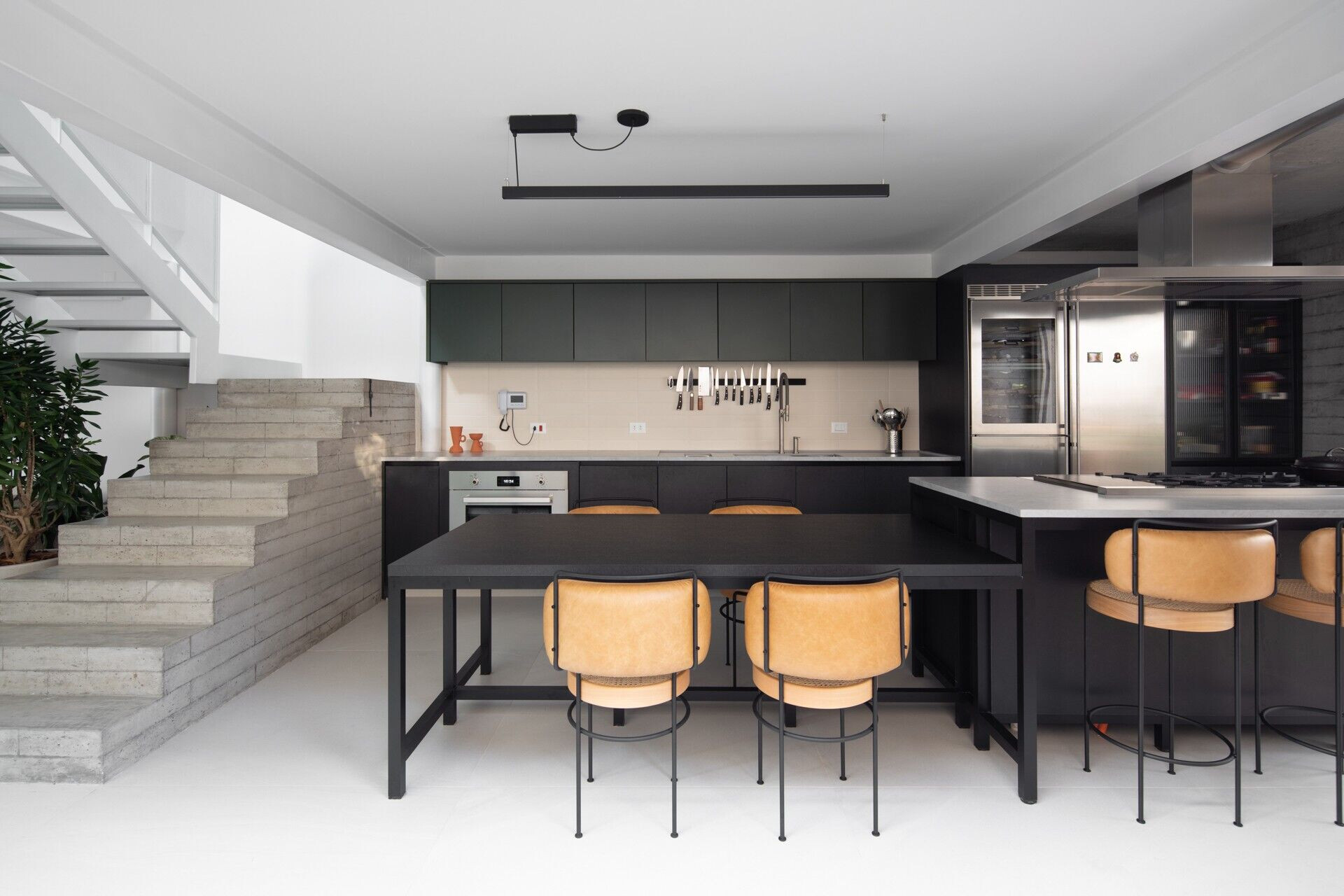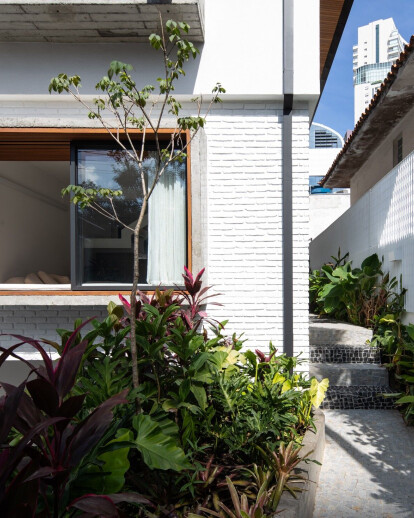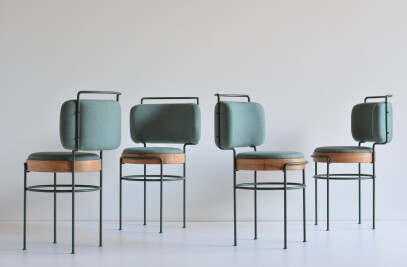With a narrow and short lot, Yuji's House is located in the Pinheiros neighborhood, on the west side of São Paulo. The project is by the Goiva office, by architects Karen Evangelisti and Marcos Mendes, and the 40-year-old building, made of solid bricks, retains a traditional look on a street in the middle of other houses and without much car movement.
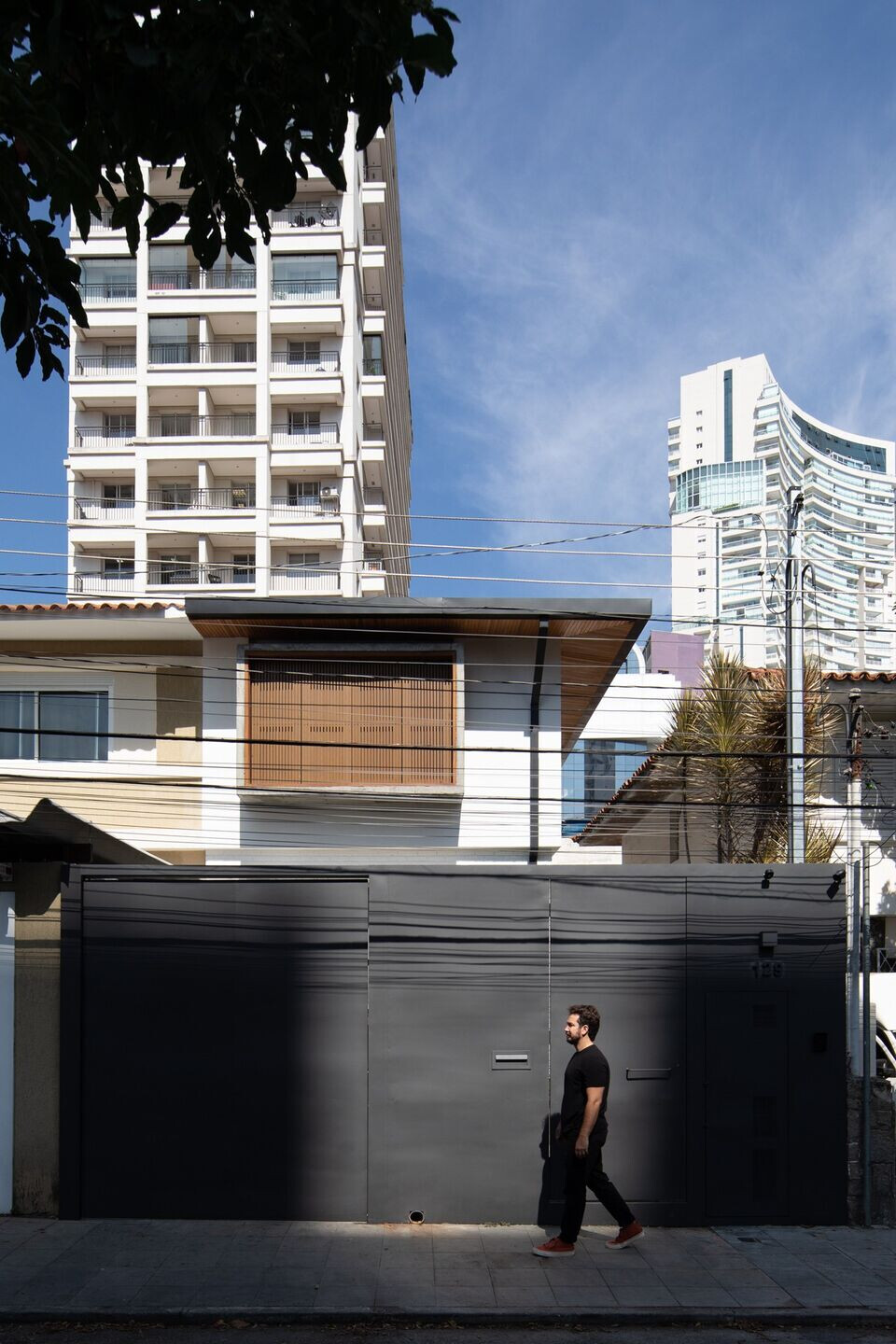
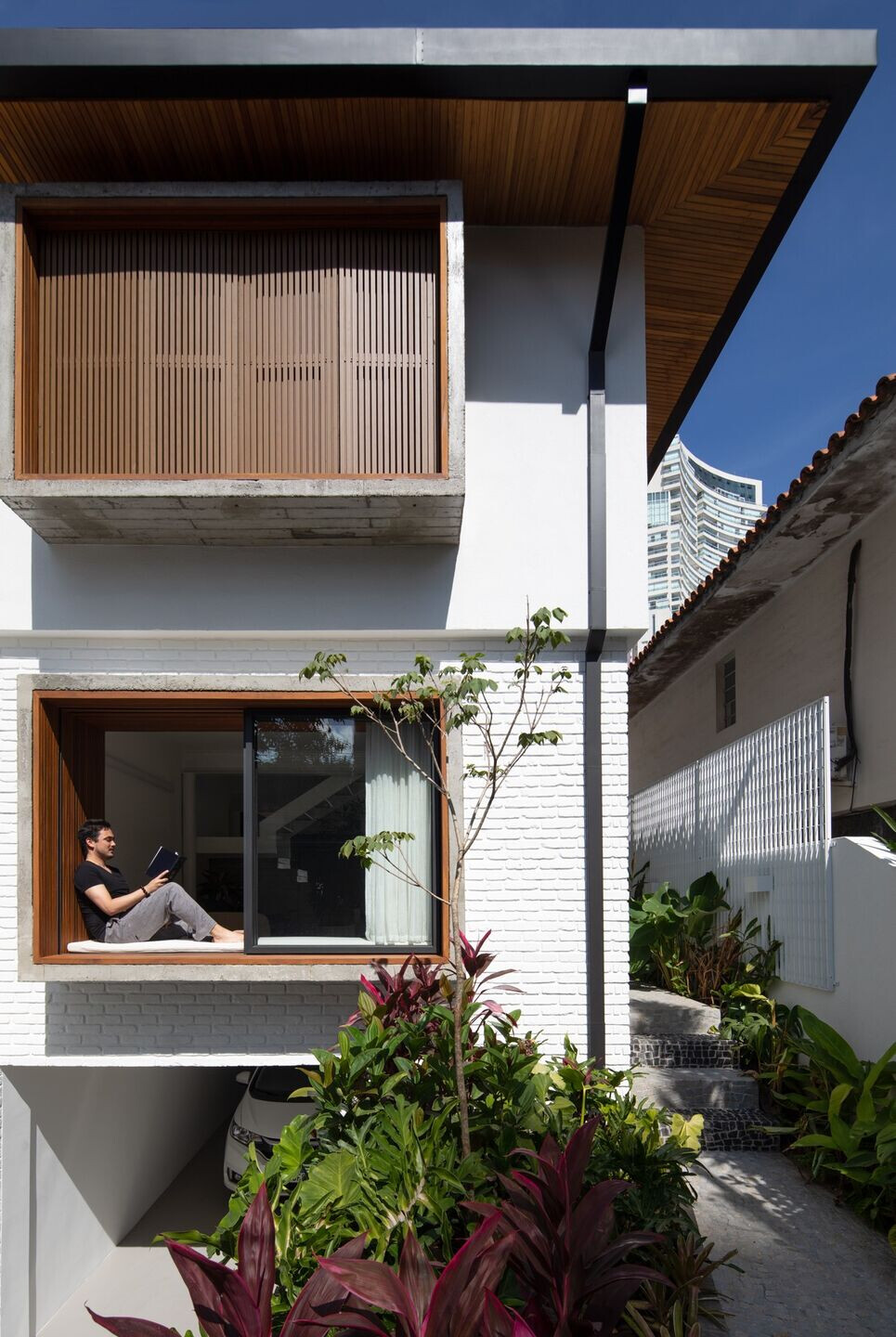
The architects had as a starting point the request of the resident Yuji for a modern house, with good finish and technology in the construction, in addition to two bedrooms on the upper floor and a bathroom, as the property already had. Another desire was to work with Brazilian design in the interiors, met through a curatorship that maintains contact with architecture and values national artists, with furniture signed by Gustavo Bittencourt, Guilherme Wentz and Estúdio Bola.
The social area was a priority for the client, who loves to host. On the first floor, the living room and kitchen are connected for easy movement and, in the back, a barbecue was built connected to the kitchen, as well as a deck as an access area. In the original plan of the residence, the corridor was used only for circulation, but became part of the social area scenario. This extension of the house, also incorporated to bring natural lighting to the kitchen and living room, was adorned by landscaping, implemented as a view block, protecting privacy.
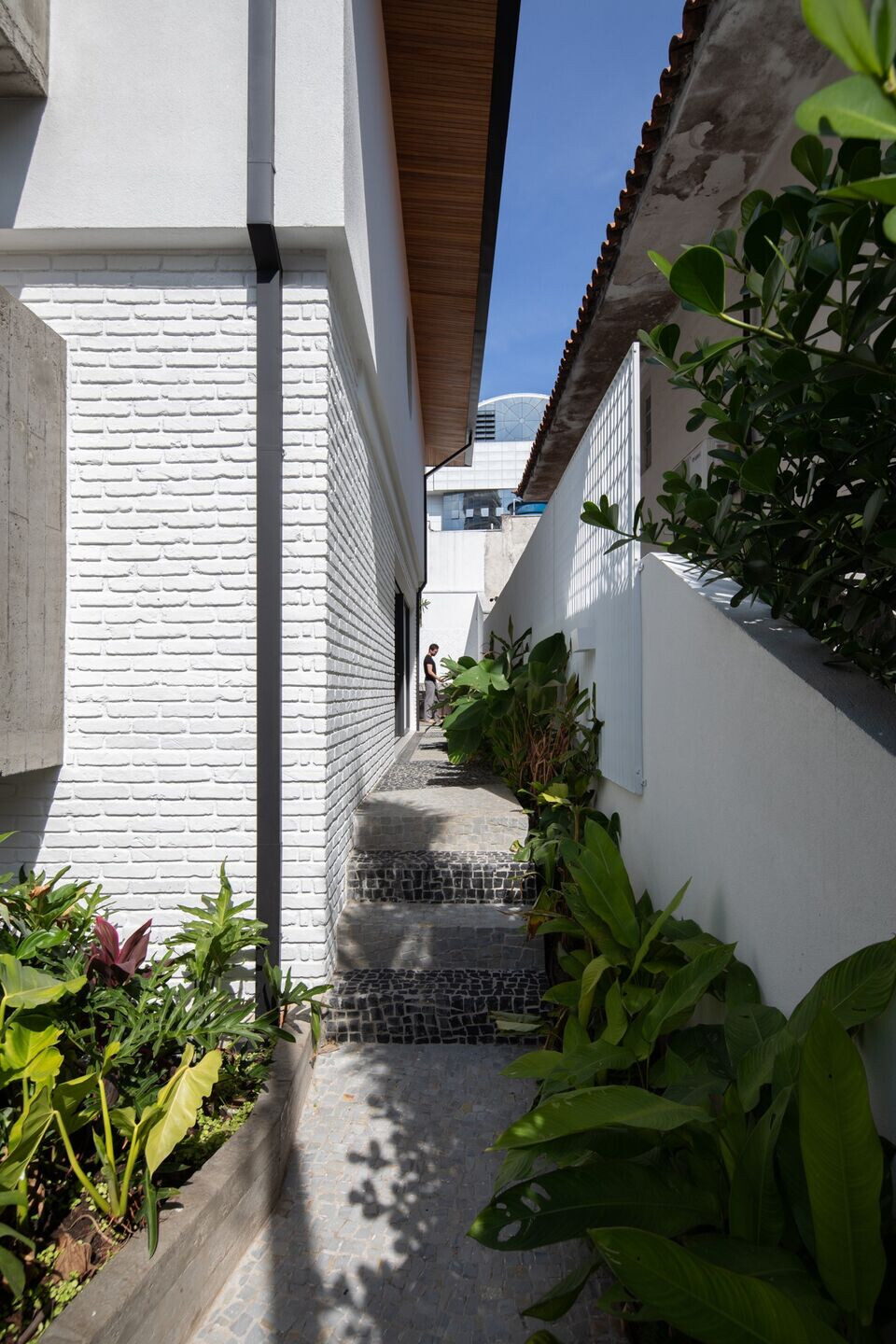
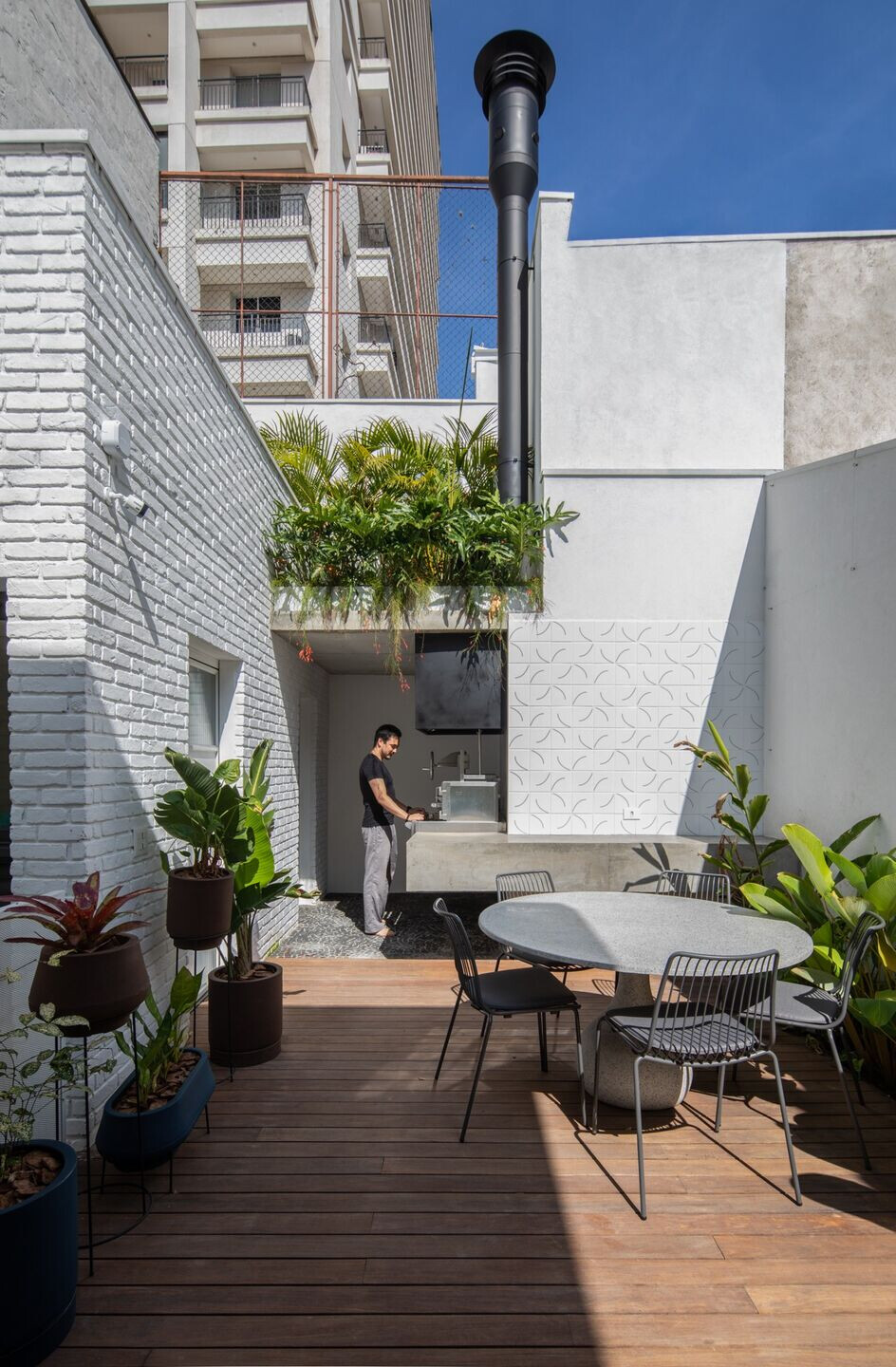
Thinking of a space to receive friends and family, the basement was excavated to build a pub, a special request from the resident, which is accessed through a sculptural steel staircase and an intimate garden. The parking lot is on a level below the first floor, taking advantage of the excavation of the previous owners.
The big challenge, according to the architects, was the structural part of the project, considered the most complex. New support structures were added to the original walls, which served as the main support system, and the body of the house was extended in concrete in the kitchen area. "Changing the structure of the house, modernizing its daily life and use without interfering with the old language and history was by far our biggest challenge," says Marcos Mendes.
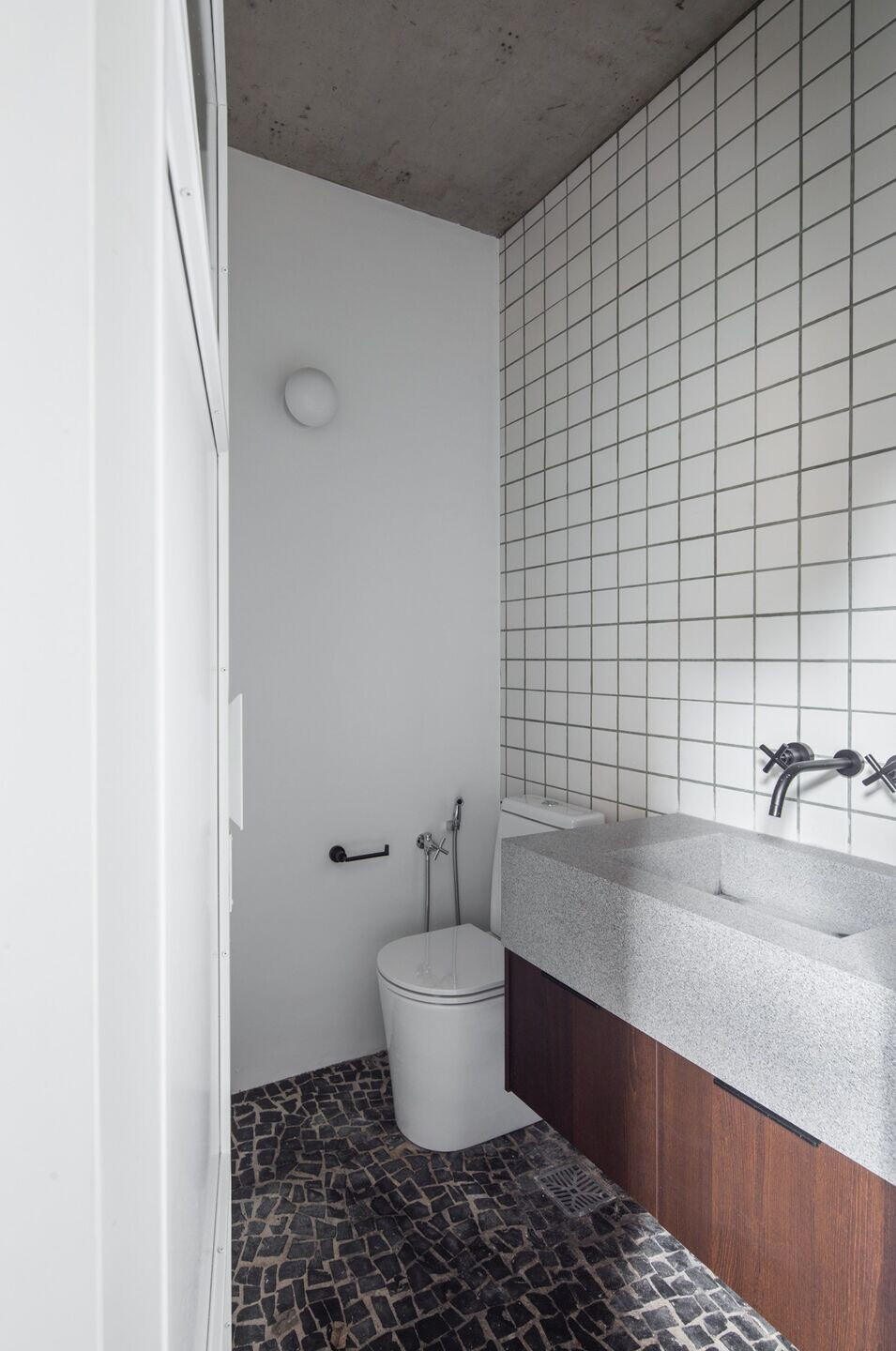
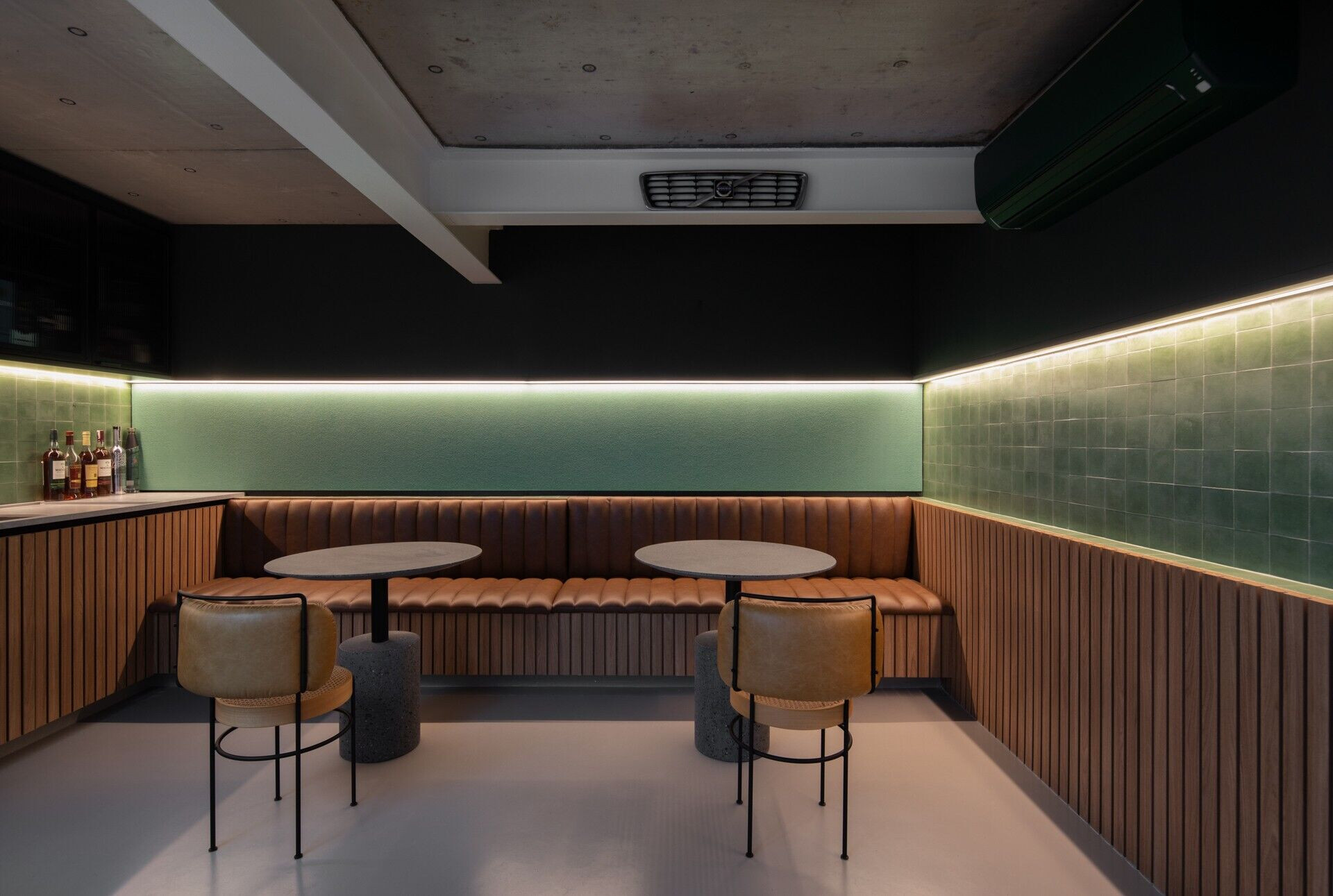
Still on the challenges, Karen Evangelisti points out that the compact, small and segmented environments were rethought so that the house could be more integrated and open. "This project gained great strength with the integration of social spaces and the use of concrete, wood and natural stone textures", she adds.
On the facade, the concrete volumes of the windows stand out in the landscape, both for those who live in the house, bringing more light and space to the interior, and for those who walk around the neighborhood, who can see a little of the atmosphere of the residence.
During the night, the external lighting becomes the protagonist. From the entrance to the end of the plot, plants stand out and enhance the architecture, making living more welcoming. As a result, the characteristics of the local houses have been maintained, but with a completely modern and renovated interior.
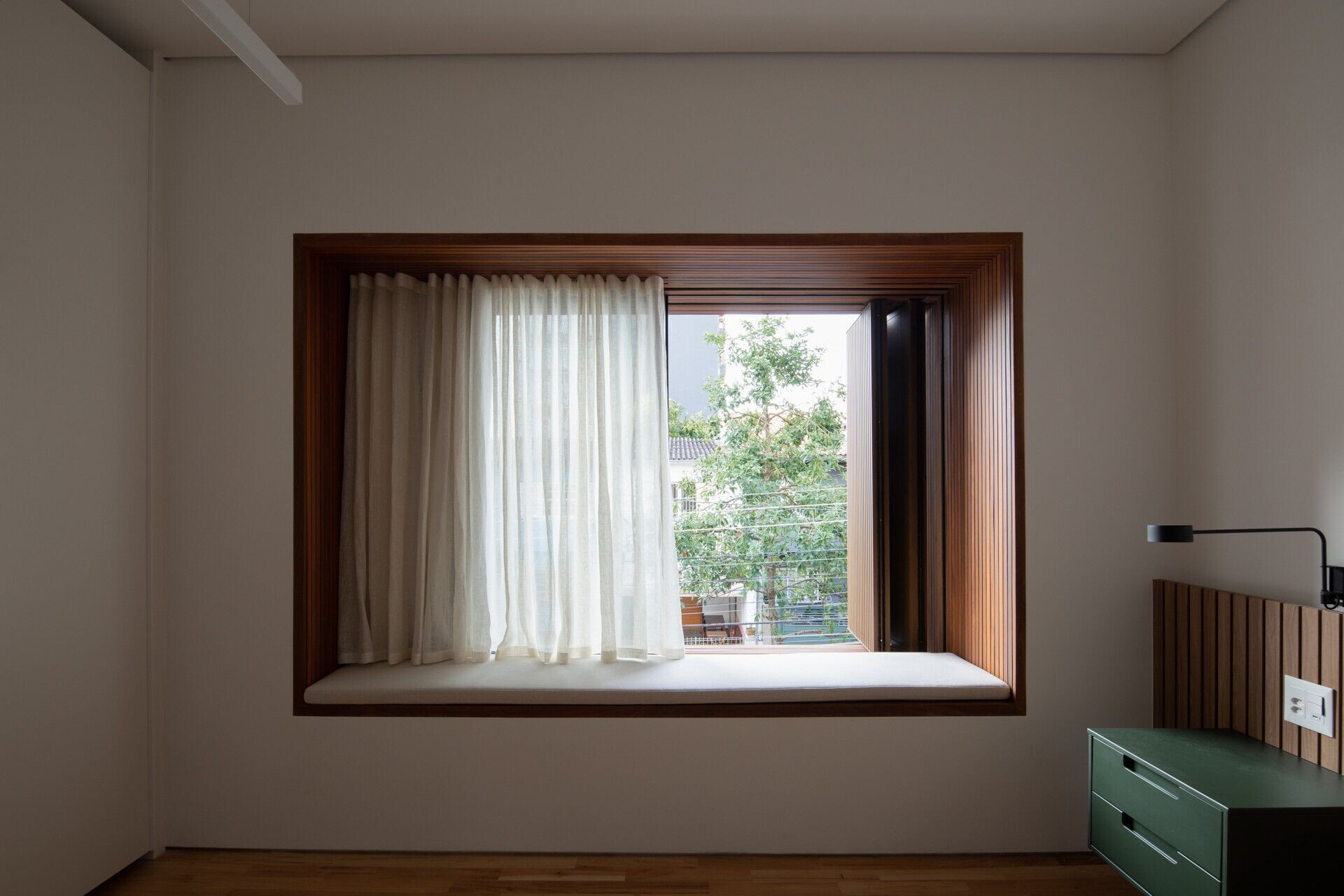
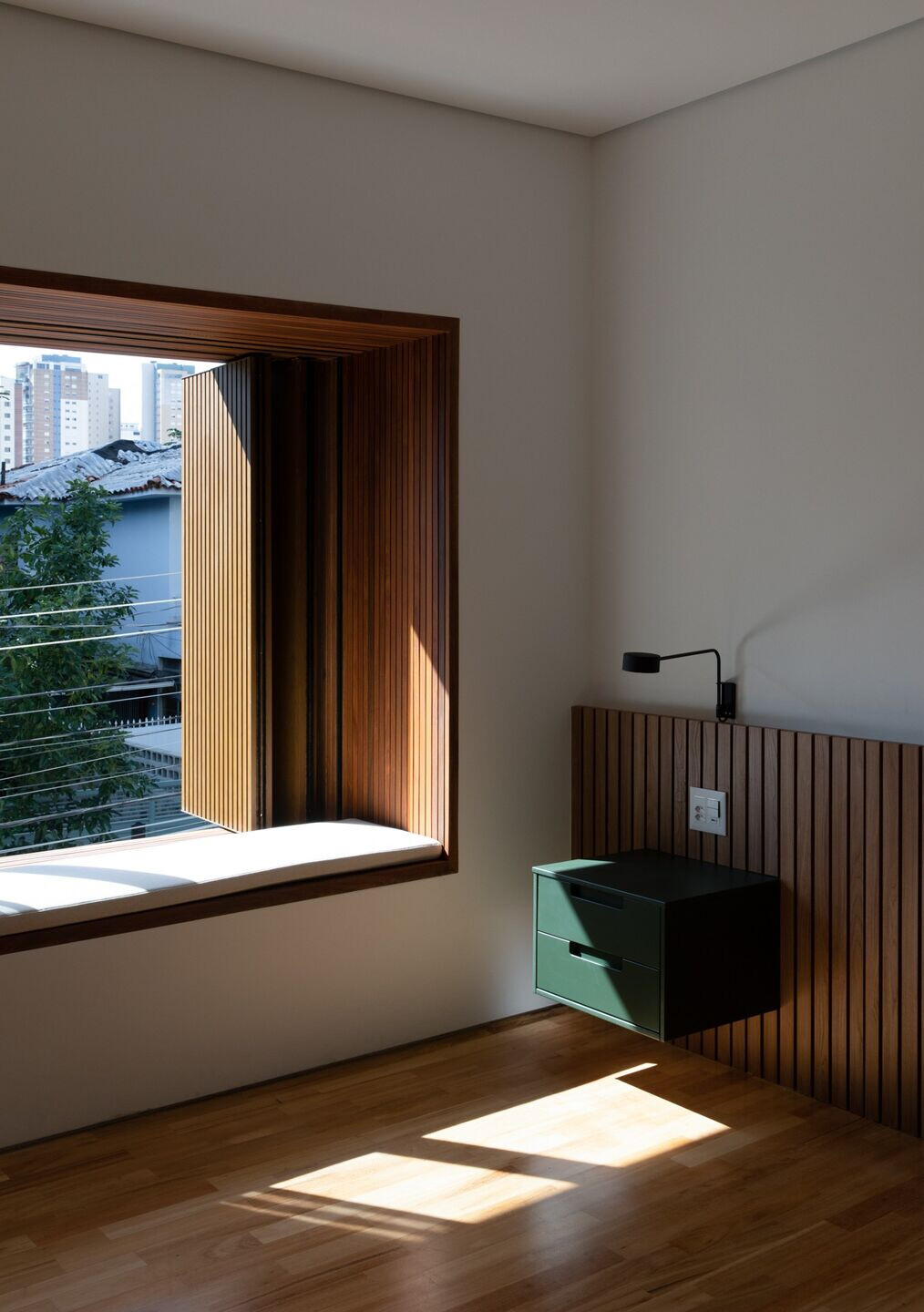
Team:
Architecture: Goiva
Project team: Karen Evangelisti, Marcos Mendes
Photography: Maira Acayaba
Videos: Igor Girotto
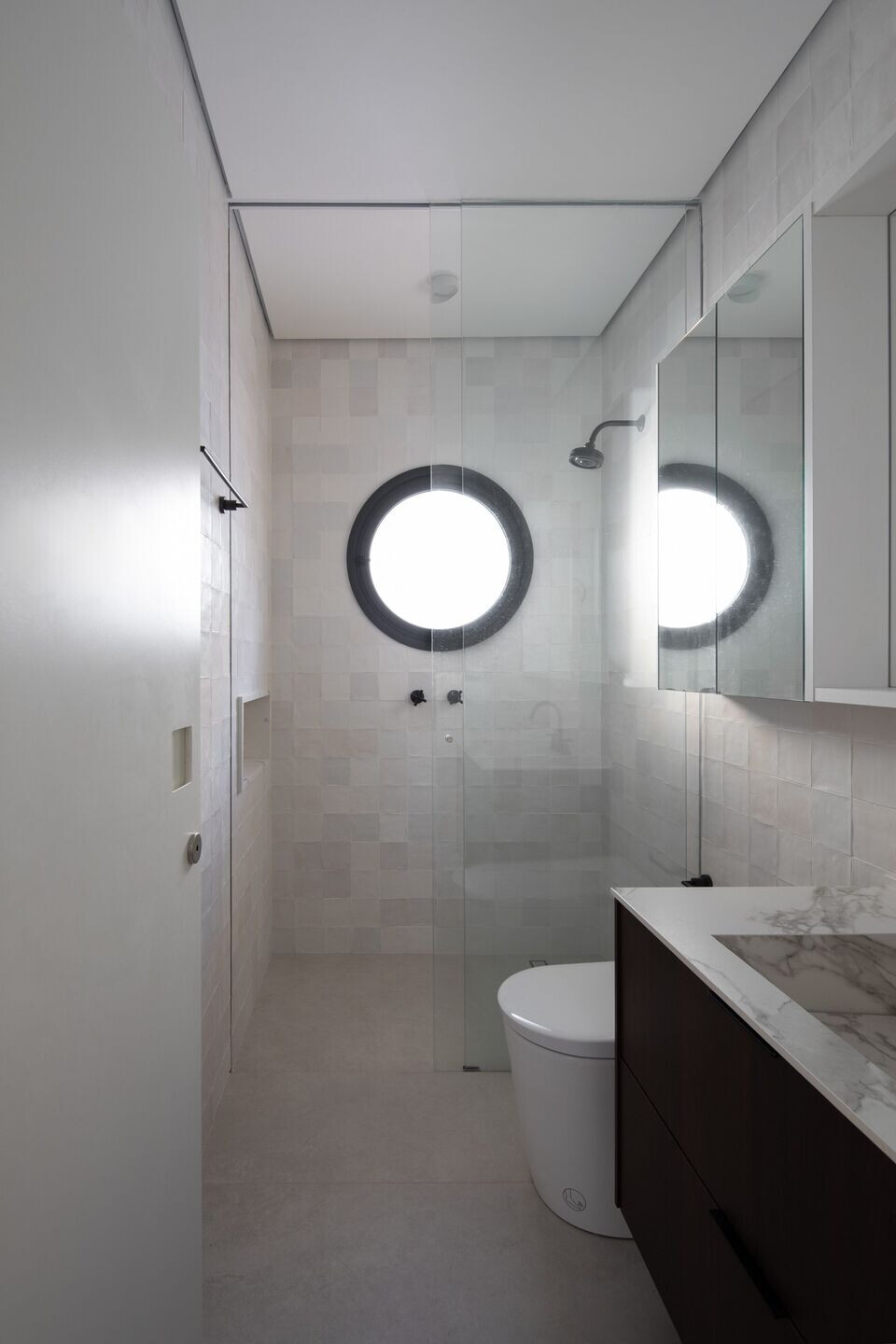
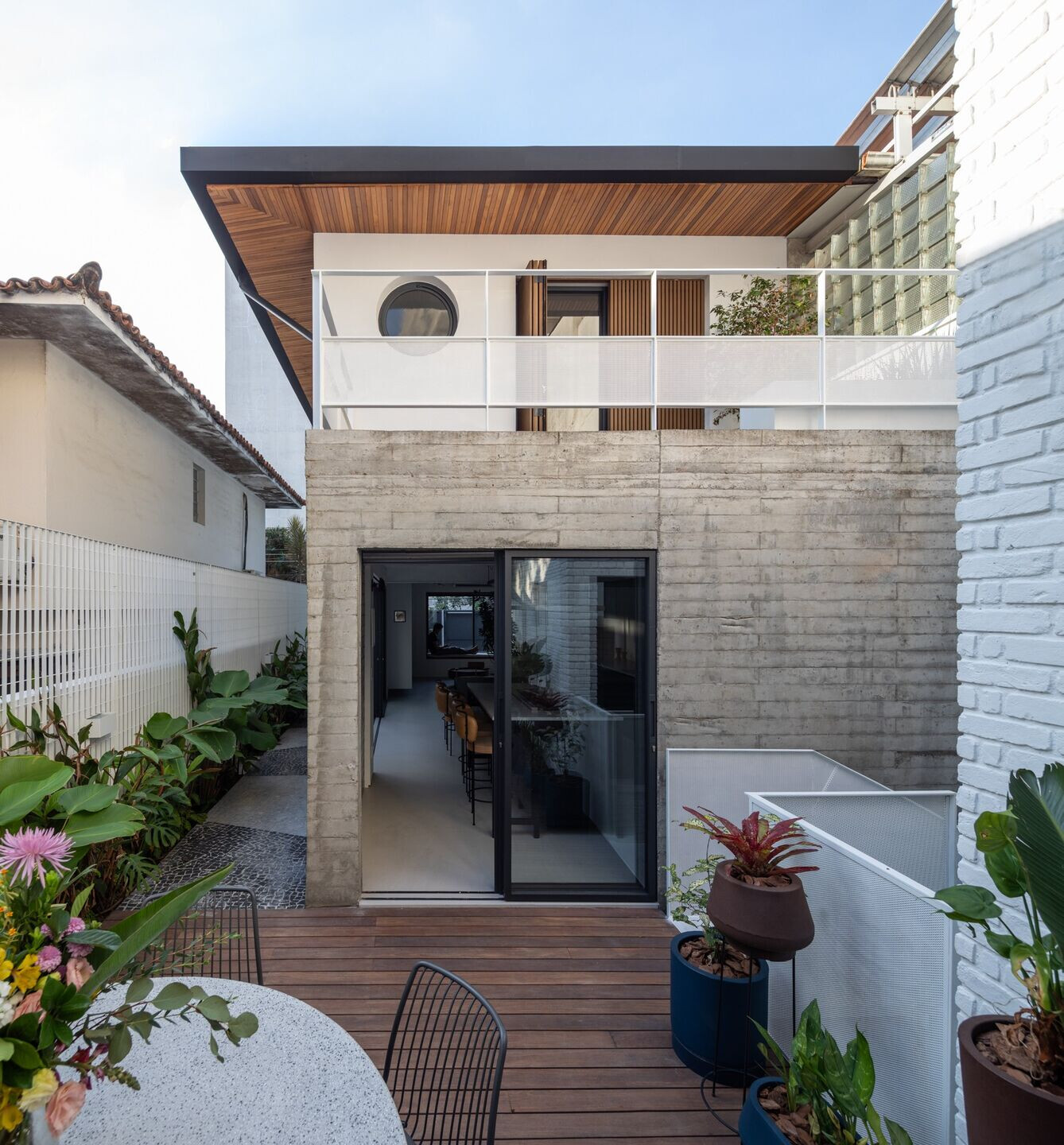
Material Used:
Structure:
1. Metal stairs: ICC Escadas
Social area:
1. Living room sofa: Wentz Design
2. Dining room chairs: Gustavo Bittencourt
3. Joinery: Kitchens
4. Coatings: Portobello
5. Pub tiles: Ladrilar
Intimate area:
1. Joinery: Kitchens
2. Frames: Jmar
3. Lighting: Reka
4. Wood flooring: Casulo Design
5. Crockery and metals: Deca
Outdoor area:
1. Table and chairs: estudiobola
2. Tiles: Lurca
Landscaping: Teco Paisagismo
Brazilian design furniture:
1. Iaia chair – Gustavo Bittencourt – Boobam
2. Iaia Stool – Gustavo Bittencourt – Boobam
3. Torno armchair - Gustavo Bittencourt – Boobam
4. Bernardo coffee table - Gustavo Bittencourt – Boobam
5. Pub table – Mesa Bouman Neck Sol – Mezas – Boobam
6. Nolita chair – Estudio Bola
7. Baloon granilite table – Estudo Bola
8. Dobra Sofa - Guilherme Wentz
